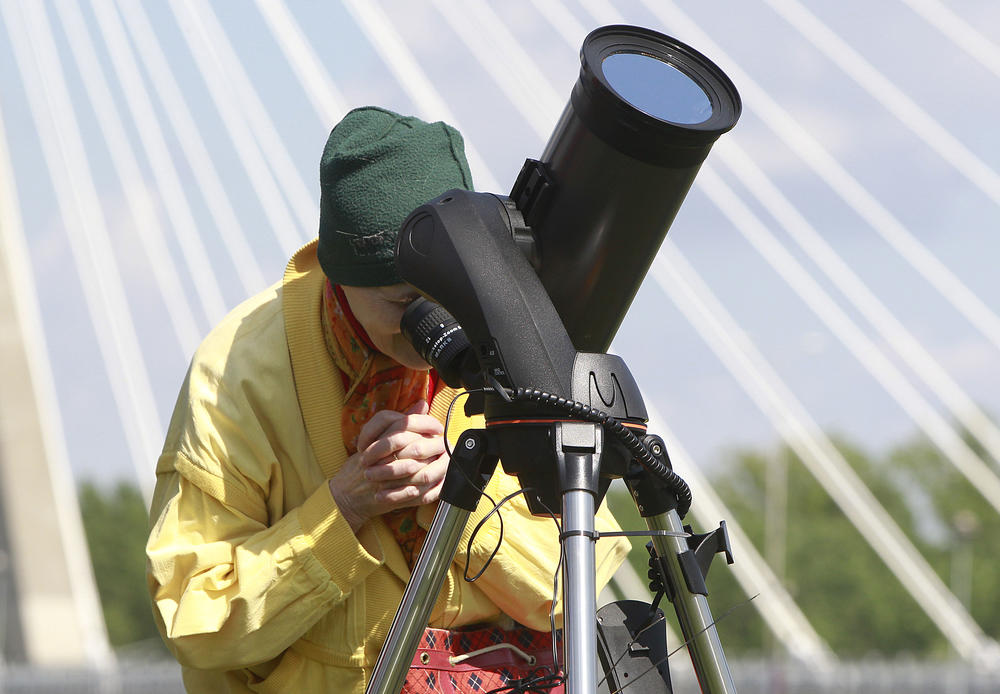Section Branding
Header Content
Rare Transit Of Mercury Visible On Veterans Day, Weather Permitting
Primary Content
Mercury will visibly move across the sun this upcoming Veterans Day, the last event of its kind until May 7, 2049, making it a last-in-a-lifetime opportunity for some Georgia residents.
GPB's Sarah Rose reports on Mercury's upcoming solar transit.
Fernbank Science Center astronomer April Whitt says Fernbank will join other centers in the South in attempting to observe Mercury's transit.
"From our vantage point, we can actually see the little black dot, the nighttime side of that planet move across the face of the sun," Whitt said.
Mercury’s journey won't be visible to the naked eye, Whitt said, and anyone who wants to witness the planet's journey should use a telescope with a solar filter.
For those wishing to watch from the comfort of their own homes, Fernbank is streaming the event on their website. However, Whitt cautions clouds could ruin the view.
There will be several other chances to view the Mercury's transit across the state, including an event hosted by astronomer Philip Groce at Coleman Hill Park in Macon from 7:30 a.m. to 1:04 p.m.

